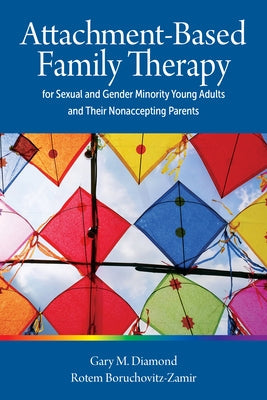American Psychological Association (APA)
Attachment-Based Family Therapy for Sexual and Gender Minority Young Adults and Their Nonaccepting Parents
Attachment-Based Family Therapy for Sexual and Gender Minority Young Adults and Their Nonaccepting Parents
Couldn't load pickup availability
Author: Gary M. Diamond, Rotem Boruchovitz-Zamir
Publisher: American Psychological Association (APA)
Published: 04/04/2023
Pages: 164
Binding Type: Paperback
Weight: 0.65lbs
Size: 9.02h x 6.10w x 0.44d
ISBN13: 9781433836619
ISBN10: 1433836610
BISAC Categories:
- Psychology | Developmental | Child
- Family & Relationships | LGBTQ+
- Family & Relationships | Parenting | General
About the Author
Gary M. Diamond, PhD, is a professor in the Department of Psychology at Ben-Gurion University in Israel. He is a licensed clinical psychologist and family therapist as well as the director and chief psychologist at the Ben-Gurion University Community Clinic. One of the primary developers of attachment-based family therapy (ABFT), in 2014, he coauthored with Guy S. Diamond (no family relation) and Suzanne A. Levy the book Attachment-Based Family Therapy for Depressed Adolescents, published by the American Psychological Association. He also took the lead in adapting ABFT for use with lesbian, gay, bisexual, and transgender depressed and suicidal adolescents and, more recently, extended this work to sexual and gender minority (SGM) young adults and their nonaccepting parents. Dr. Diamond's research examines the processes and outcomes of ABFT. He has studied the therapeutic alliance in family therapy, emotional processing, attachment anxiety and avoidance, parental responsiveness and parental acceptance, and corrective attachment episodes. In 2014, along with Guy S. Diamond, he received the American Foundation for Suicide Prevention's annual research award. He trains people internationally in ABFT for SGM adolescents and young adults. You are invited to visit https: //www.bgupsychotherapyresearch.org/ to read more about his work.
Share

